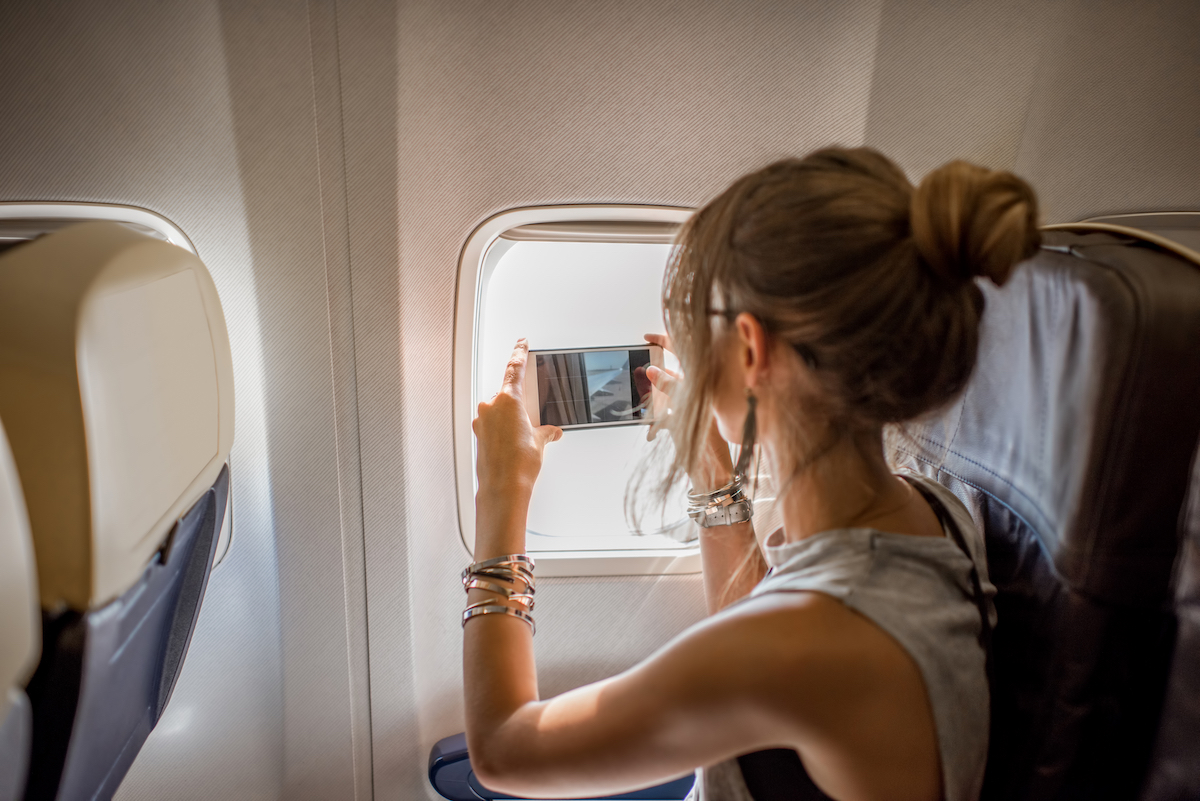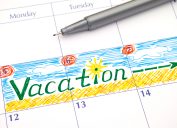7 Best Ways to Avoid Jet Lag, According to Experts
The dreaded downside of long-distance travel doesn't have to mess with your vacation plans.

Traveling is a meaningful way to meet new people, spark creativity, and enhance personal growth while exploring new pockets of the world. It's exciting and inspiring, but it can also be exhausting. Jet lag is real and kicks in when traveling across multiple time zones. It can disrupt your sleep pattern, trigger headaches and nausea, and cause you to lose precious vacation time.
A recent study from YOTEL revealed that 42% of travelers find coping with jet lag to be a real struggle. More than half (53%) admit that the fear of missing out often leads them to ignore their body's fatigue. In addition, 23% confessed they would reconsider their travel plans if it meant that they could avoid jet lag.
But, there's no need for you to rearrange your travel plans. Simply pack your bags and follow these expert tips to avoid jet lag before it even starts.
RELATED: The Ultimate Solo Travel Guide: 16 Secrets From Experts.
1. Adjust Your Sleep Schedule Before Traveling

If you're flying from the East Coast to Europe, Dr. Eugene Delaune, MD, an advisor with Allianz Partners, suggests adjusting your sleep schedule about a week before your trip to align with the sleep schedule you'll follow at your destination.
On your travel day, Dr. Delaune recommends sleeping on the plane if it's an overnight flight and avoiding napping once you arrive. "It helps to take a shower, change clothes, and spend time in the light outside to convince the body that it's starting a new day," he says. "Even if you're tired the first night, a sleep aid might be helpful to avoid waking up."
On the other hand, if you're traveling from the West Coast to Europe, Dr. Delaune recommends a different strategy: "In addition to a gradual shift in sleep schedule in the days before travel (staying in bed later in the morning and staying up later at night), it is best to avoid sleep during the flight."
Once you're at your destination, he recommends taking a sleep aid on the first night to get a "full night of sleep and adjust to the new time zone more quickly."
2. Stay Hydrated

Drinking water is always healthy, but it's especially important while traveling.
"Airplane cabins have low humidity levels, as low as 5-20%," says Bob Bacheler, DNP, CFRN, CCRN, managing director of Flying Angels, Inc. "This is lower than the Sahara Desert, which can lead to dehydration. Dehydration can exacerbate symptoms of jet lag, such as fatigue and headaches."
Staying hydrated can reduce fatigue and other symptoms of jet lag.
RELATED: Major Airports Suddenly Banning Plastic Water Bottles.
3. Use a Travel App to Help You Plan

A practical tool to use that helps combat jet lag is the Timeshifter App. It's an easy way to create a schedule that's based on your flights, home timezone, and destination timezone.
"It tells me when to sleep, when to have caffeine, and when to seek out or avoid bright lights," says Amber Haggerty, a travel blogger with Amber Everywhere. "I've found that it makes a noticeable difference in the jet lag I experience when I land, especially if I follow it carefully."
4. Try Red Light Therapy

People use red light therapy to fight wrinkles and smooth skin, but it can also help with jet lag, according to travel blogger Kathryn Anderson.
"One of the newest ways to avoid jet lag is to biohack your body with red light therapy," she explains. "By using a red light therapy sleep device, you can reset your circadian rhythm and avoid the unpleasant effects of jet lag."
Surprisingly, it's helped Anderson completely avoid feeling sluggish and tired after a long flight. "I used one after a 9-hour flight from Vancouver, BC to Barcelona, Spain, and I skipped jet lag entirely. Red light therapy devices really do work!"
RELATED: 20 Best Travel Pants to Wear That Make Any Trip More Comfortable.
5. Don't Sleep on the Plane

Despite tip number one, some avid travelers swear by not sleeping on a flight to battle jet lag, such as Peter Shankman, entrepreneur, author, and keynote speaker, who racks up 350k miles a year.
"I bring tons of extra work on the plane, watch movies, etc. I also go to the galley and do 20 squats every 90 minutes to keep the blood flowing," he says.
In some cases, by not sleeping on the plane, you can stay up until bedtime in your usual time zone.
"Go to the gym quickly before bed, have a light dinner, then sleep at your normal time," Shankman suggests. "You'll wake up in the morning with no jet lag. Do the same thing on the way home."
6. Avoid Caffeine and Alcohol

It's tempting to throw back some drinks on long flights, but consuming caffeine or alcohol can enhance the effects of jet lag, dehydrate your body, and disrupt your sleep.
"Stick to water and herbal teas, which will help keep you hydrated and potentially make it easier to adjust to a new time zone," Peter Hamdy, says managing director at Auckland & Beyond Tours. The vacation drinks can wait until you've touched down and your adventure has begun.
7. Freshen Up Once You Land

When you arrive at your destination, don't nap or lounge around. You'll fall into a terrible sleeping pattern that is hard to break, our experts say.
Instead, "freshen up by brushing your teeth, washing your face, or using body cleansing wipes," Danielle Desir Corbett, an award-winning affordable travel expert and the host of "The Thought Card Podcast" says. "The best way to overcome jet lag is to rest, rejuvenate, and adapt to the local time from day one."





















